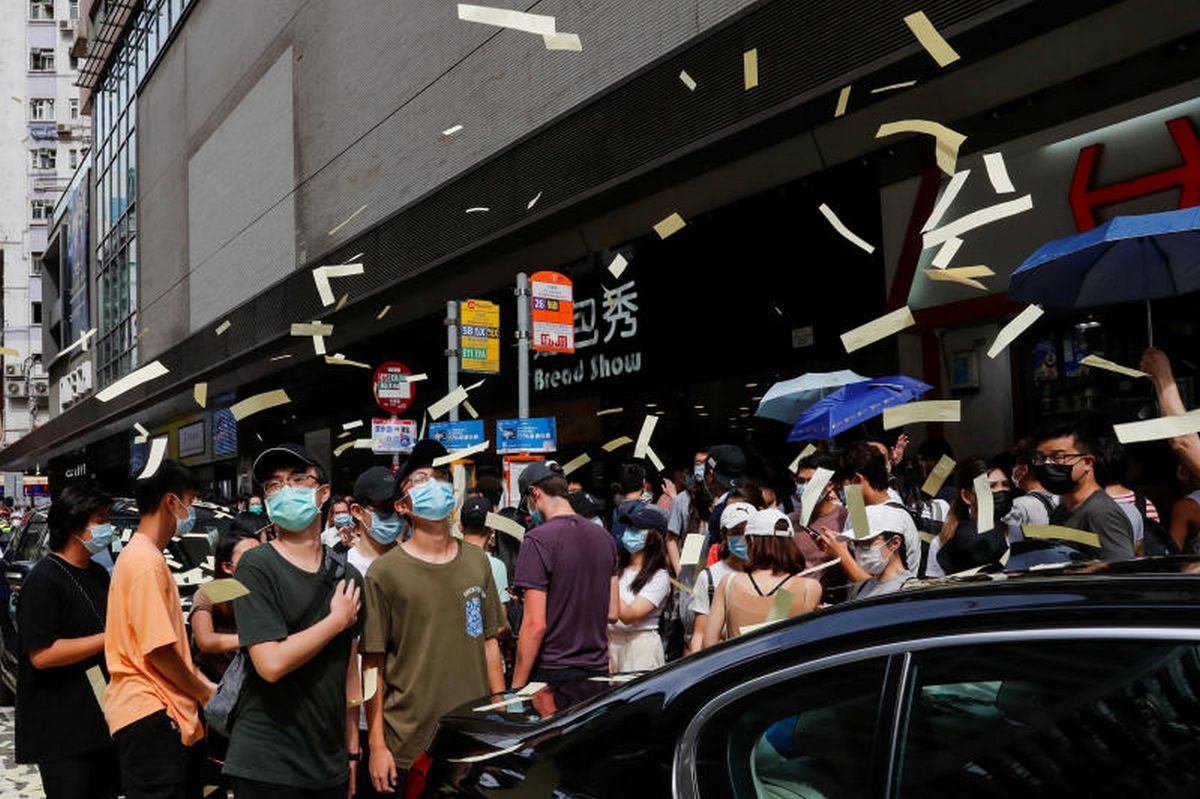With an uncertain future in Hong Kong, investors look to Singapore

A few minutes every morning is all you need.
Stay up to date on the world's Headlines and Human Stories. It's fun, it's factual, it's fluff-free.
The rapid industrialization and high economic growth rate Hong Kong saw in the 1960s led to it being labeled as one of the four “Asian Tigers,” with seemingly limitless potential.
Today, though, the situation is quite different. Hong Kong’s political situation has grown more uncertain by the day and now, with the passage of a new national security bill, investors are considering departing Hong Kong for another of the former Asian Tigers – Singapore.
Hong Kong’s situation
Despite the two economies having once been connected and achieving historic economic success together, their paths have diverged more than ever, largely due to Hong Kong’s political and social unrest.
Once a British colony, after 1997, the special administrative region (SAR) was handed back to mainland China provided that the city would continue operating under the one country, two systems framework. However, differences in how this promise was interpreted has led to periodic unrest in the city, especially over the last 12 months.
In 2019, Hong Kong saw an eruption of anti-government protests. Demonstrations that were initially provoked by a contentious extradition bill (now tabled) have snowballed into continual unrest and violence on the island.
In an attempt to quell the dissenting voices and curb the violence, the Chinese government introduced a national security bill that would punish activities related to subversion, terrorism, separatism and foreign interference.
The law’s proposal has been met with a swift backlash from the international community.
The United States announced on June 29 that it would halt exports of defense equipment to Hong Kong and place restrictions on dual-use technology exports as a “direct consequence” of China’s proposed national security law.
Several hours after the US announced the halting of exports, news broke that China had passed the bill, granting the Beijing sweeping powers over the city.
The next day on July 1, the anniversary of Hong Kong’s return to Chinese rule, thousands took to the streets to protest against the newly enacted law. Nearly 400 people were arrested with 10 charged with violating the new legislation.
Investors moving money away
Both Hong Kong and Singapore both succeed in attracting vast amounts of foreign direct investment (FDI), one of the main standards of international economic competitiveness. This has led startup companies to set up shop in both cities, real estate investments to pour in and technological research and development to take place within their borders.
However, the new Hong Kong security law creates further ambiguity for the city’s seven million residents who are already witnessing the highest levels of unemployment seen in the city for 15 years, the worst recession on record after over 12 months of anti-government protests and the outbreak of COVID-19.
As a consequence, expats and locals in the city are considering moving. Investors are also relocating their money.
According to Goldman Sachs, as of August 2019, capital flow into Singapore from Hong Kong reached US$4 billion amid the city’s protests and unrest with Kevin Lai, the chief economist for Asia, excluding Japan, saying last year that “Many people may leave. They will also take their money with them."
In May of this year, Edmund Koh, the Swiss bank’s president in the Asia-Pacific region, also confirmed that while significant cash hadn’t started moving between the two regions, high net worth individuals from Hong Kong have started opening more bank accounts in Singapore in preparation for the possibility of a worsened political climate.
Concern isn’t justified
Net outflows of financial non-reserve assets hit HK$255.2 billion (US$32.93 billion) last year, higher than the HK$165.9 billion recorded in 2018, with the driver of this change being driven by portfolio investment.
However, to place this in perspective, this number is small compared to Hong Kong’s dollar-dominated deposits which are at HK$6.875 trillion and US dollar-denominated deposits of HK$5.153 trillion.
In an interview on June 28, 2020, Bernard Chan, Hong Kong Deputy of the National People’s Congress said, “I have reason to believe that China wants to make sure that the two systems, and the investors and the business people and just the well-being of the Hong Kong people will remain as it is.”
“I understand all of the geopolitical uncertainty,” Chris Leung, the Executive Director and Chief China Economist of DBS Bank, said at a private event on June 17. “I understand that the political situation between the US and China is likely to get worse before [it has] a chance to get better.
“Also the uncertainty in the political domain facing Hong Kong in the next six months is very strong. But at the same time these uncertainties are not reflected in the exchange rate, property prices and equity price in general.”
Have a tip or story? Get in touch with our reporters at tips@themilsource.com




Comments ()